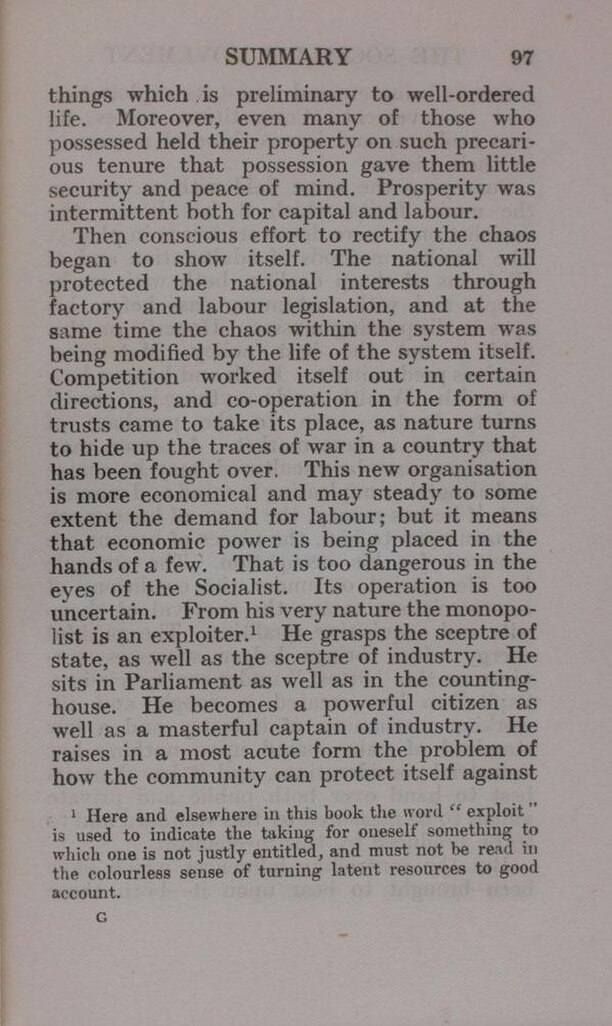things which is preliminary to well-ordered life. Moreover, even many of those who possessed held their property on such precarious tenure that possession gave them little security and peace of mind. Prosperity was intermittent both for capital and labour.
Then conscious effort to rectify the chaos began to show itself. The national will protected the national interests through factory and labour legislation, and at the same time the chaos within the system was being modified by the life of the system itself. Competition worked itself out in certain directions, and co-operation in the form of trusts came to take its place, as nature turns to hide up the traces of war in a country that has been fought over. This new organisation is more economical and may steady to some extent the demand for labour; but it means that economic power is being placed in the hands of a few. That is too dangerous in the eyes of the Socialist. Its operation is too uncertain. From his very nature the monopolist is an exploiter.[1] He grasps the sceptre of state, as well as the sceptre of industry. He sits in Parliament as well as in the counting-house. He becomes a powerful citizen as well as a masterful captain of industry. He raises in a most acute form the problem of how the community can protect itself against
- ↑ Here and elsewhere in this book the word "exploit" is used to indicate the taking for oneself something to which one is not justly entitled, and must not be read in the colourless sense of turning latent resources to good account.
